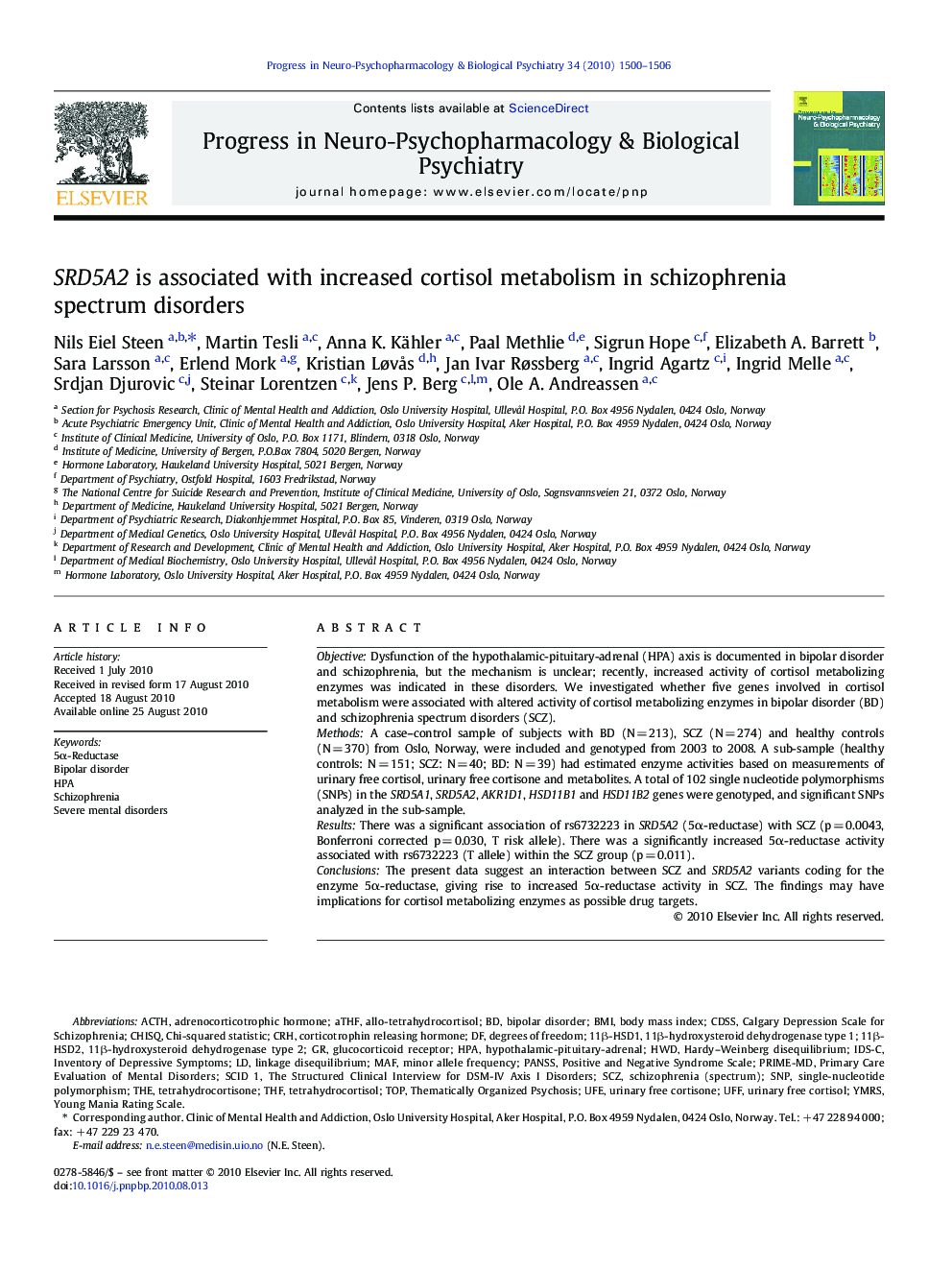| Article ID | Journal | Published Year | Pages | File Type |
|---|---|---|---|---|
| 2565153 | Progress in Neuro-Psychopharmacology and Biological Psychiatry | 2010 | 7 Pages |
ObjectiveDysfunction of the hypothalamic-pituitary-adrenal (HPA) axis is documented in bipolar disorder and schizophrenia, but the mechanism is unclear; recently, increased activity of cortisol metabolizing enzymes was indicated in these disorders. We investigated whether five genes involved in cortisol metabolism were associated with altered activity of cortisol metabolizing enzymes in bipolar disorder (BD) and schizophrenia spectrum disorders (SCZ).MethodsA case–control sample of subjects with BD (N = 213), SCZ (N = 274) and healthy controls (N = 370) from Oslo, Norway, were included and genotyped from 2003 to 2008. A sub-sample (healthy controls: N = 151; SCZ: N = 40; BD: N = 39) had estimated enzyme activities based on measurements of urinary free cortisol, urinary free cortisone and metabolites. A total of 102 single nucleotide polymorphisms (SNPs) in the SRD5A1, SRD5A2, AKR1D1, HSD11B1 and HSD11B2 genes were genotyped, and significant SNPs analyzed in the sub-sample.ResultsThere was a significant association of rs6732223 in SRD5A2 (5α-reductase) with SCZ (p = 0.0043, Bonferroni corrected p = 0.030, T risk allele). There was a significantly increased 5α-reductase activity associated with rs6732223 (T allele) within the SCZ group (p = 0.011).ConclusionsThe present data suggest an interaction between SCZ and SRD5A2 variants coding for the enzyme 5α-reductase, giving rise to increased 5α-reductase activity in SCZ. The findings may have implications for cortisol metabolizing enzymes as possible drug targets.
Research Highlights► Data suggesting an interaction between SCZ and the gene SRD5A2. ►Variants of SRD5A2 associated with increased 5α-reductase activity in SCZ. ► Supports cortisol metabolism as part of the HPA axis pathophysiology in SCZ.
